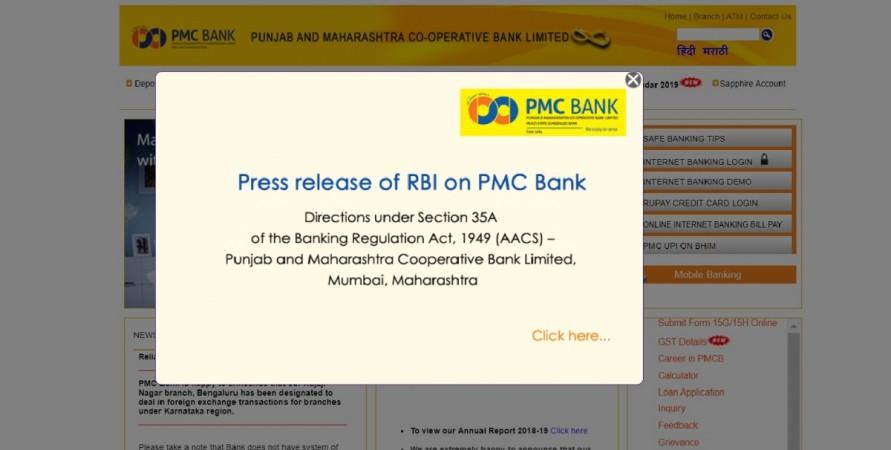
The Punjab and Maharashtra Cooperative (PMC) earlier this week faced restriction from the Reserve Bank of India. The central bank severely restricted its banking activity allowing a withdrawal of only Rs 1,000 for the next six months, the amount, however, was raised to Rs 10,000 on Friday, providing some relief for its retail customers. So, Is PMC single ban that has kept under RBI's restriction? The answer is no. Since the beginning of 2019, the RBI has put 23 more co-operative banks under similar restrictions. Notably, the RBI does have direct control over these co-operative banks, however, the apex bank may intervene in case of any critical situation.
The Indian Express reported that RBI, under Section 35(A) of the Banking Regulation Act, put a cap on withdrawals on Tuesday and appointed an administrator over the board of PMC after financial irregularities and audit concerns were found out. Since January, 23 other banks have also been put under such restriction and in fact, the RBI extended the restriction period in case of 10 banks. The banking industry argues that such huge numbers show the lethargic state of co-operative banks and raise serious concerns over the way these banks are being managed and regulated.
Data collated by Maharashtra State Bank Employees Federation (MSBEF), shows that PMC bank is the 24th bank where RBI has invoked Section 35(A). The section empowers the RBI to give directions to banks in a bid to "to prevent the affairs of any banking company being conducted in a manner detrimental to the interests of the depositors or in a manner prejudicial to the interests of the banking company". The RBI can also "secure the proper management of any banking company" under this section.

The co-operative banks that have been served an extension of transaction restriction include Kapol Co-operative Bank, Rupee Co-operative Bank, Mercantile Co-operative Bank and The City Co-operative Bank among others. Other banks apart from PMC bank that has seen section 35 (A) invoked against them are Mapusa Urban Co-operative Bank of Goa, Kerala Mercantile Co-operative Bank, The Maratha Sahakari Bank, The CKP Co-operative Bank and Bidar Mahila Urban Co-operative Bank among others.
Devidas Tuljapurkar, general secretary, MBSEF argued that instead of placing sudden restrictions, the central bank should "Carry out inspection of all Urban Co-operative Banks," and carry out do a quality inspection to deal with defaulter urban co-operative banks.








